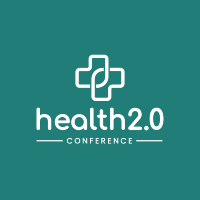Health 2.0 Conference Identifies Senior Scam In Healthcare As A Growing Threat

Strong 8k brings an ultra-HD IPTV experience to your living room and your pocket.
Most people worry about rising medical costs or long wait times. But for many older adults, the real threat slips in through scam calls, emails, and fake healthcare portals. Scam offenses and healthcare fraud are rising rapidly and seniors are often the primary targets. From bogus insurance plans to shady telehealth providers, these schemes can cause serious harm, financially, emotionally, and even medically.
Experts at a global health conference, such as the Health 2.0 Conference, highlight how these scam offenses against seniors are quietly weaving into the healthcare experience, prompting concern across the industry. The question now isn’t just how these scams happen, but why seniors are such frequent targets, and what healthcare providers, policymakers, and innovators can do to protect them. Let’s take a closer look.
Why Are Seniors Especially Vulnerable To Scam Offenses?
Scammers don’t choose older adults by chance. They know this group often manages multiple health issues, attends frequent appointments, and deals with a flood of medical paperwork. In the middle of all this, it’s easy for fraudulent charges or misleading services to slip through unnoticed. Add in the complexity of insurance language, and seniors become ideal targets for scam offenses that appear legitimate at first glance. Experts at a health conference have highlighted fraud as a growing risk for seniors, citing confusion and increased vulnerability.
Many older adults also face a digital disadvantage. Suspicious emails, spoofed websites, or fake health portals may go undetected, making it more likely that users will share sensitive information without realizing the risk. Additionally, social isolation can lead seniors to be more trusting of strangers who appear helpful or urgent. Scammers use friendly tones, scare tactics, or even fake credentials to earn their trust, and unfortunately, it works more often than we’d like to admit.
Types Of Healthcare Scam Offenses Targeting Seniors
Fraud targeting older adults often manifests in various schemes. These scam offenses are not only illegal but also ethically reprehensible, as they exploit the trust seniors place in healthcare providers and systems.
Common scam types include:
1. Medicare Billing Fraud: Criminals use stolen Medicare numbers to bill for services that were never delivered, often going undetected for months.
2. Fake Insurance Plans: Scammers market non-existent health insurance policies to seniors, collecting premiums without providing any coverage.
3. Telehealth & Device Scams: Fraudsters pose as telemedicine providers or medical alert companies to extract personal information or send unneeded equipment, then bill insurers.
4. COVID-19 Related Frauds: Seniors have been duped into paying for fake vaccines, tests, and protective gear from spoofed government and hospital sources.
Experts at the Health 2.0 Conference have identified scam offenses and healthcare fraud as critical challenges in senior care. With overlapping tactics and increasing sophistication, these threats are more complex to detect without coordinated efforts. The conference underscored the pressing need for more intelligent systems to safeguard vulnerable aging populations.
Common Red Flags In Senior Scam Offenses
Healthcare professionals, caregivers, and seniors must remain vigilant for red flags that often indicate potential scam offenses. Early detection is crucial to preventing widespread harm. At a recent health conference, experts emphasized that fraud in senior care is not always blatant. Spotting unusual charges, unfamiliar providers, or unsolicited offers can make the difference between early intervention and long-term consequences for vulnerable older adults.
- Unexpected charges on Explanation of Benefits (EOB) statements.
- Claims for services the patient never received.
- Phone calls from unknown parties offering “free” medical equipment.
- Unsolicited requests for Medicare or insurance numbers.
- Email or SMS messages requesting login info for health portals.
Recognizing these indicators early empowers healthcare providers and families to intervene before more serious consequences unfold.
What Providers Can Do Before Fraud Reaches The Patient
Healthcare providers are in a powerful position to stop scam offenses before they escalate. They are not only responsible for treating illness but also play a critical role in identifying and preventing healthcare fraud targeting older adults. By incorporating fraud awareness into everyday care, providers can help seniors understand complex bills, question unusual services, and recognize early warning signs. Even a brief conversation during a routine visit or follow-up can make a meaningful impact.
Digital health innovators also carry significant responsibility. At the Health 2.0 Conference, experts have highlighted the urgent need for fraud-resistant tools in elder care. Features like simplified user interfaces, secure authentication, and real-time alerts can prevent scam offenses before they reach patients. When clinicians, caregivers, and technologists work together with fraud prevention in mind, seniors receive not only quality care but also essential protection from exploitation.
Policy Recommendations & Tech-Based Solutions
Policymakers and health tech leaders agree that awareness alone is not enough. At a recent health conference, fraud targeting seniors was identified as a growing threat. Experts called for stronger systems, better regulations, and more innovative technologies to reduce scam offenses and protect older adults from long-term financial and medical harm.
Key policy and innovation steps include:
National Oversight Task Forces: Encourage interagency cooperation to investigate and prosecute scams targeting seniors.
EHR Security Standards: Enforce stricter access controls and patient alerts in Electronic Health Record systems.
Fraud Education Campaigns: Launch multilingual awareness campaigns, especially during Medicare enrollment periods, with a focus on digital and community channels.
Senior-Focused UX Design: Ensure telehealth and health management apps are tailored to older adults, reducing their reliance on intermediaries who may be scammers.
When implemented together, these measures lay the foundation for a healthcare system that actively resists fraudulent activity, rather than reacting to it after the damage is done.
Insights From Experts To Protect Seniors From Scam Offenses
Healthcare fraud targeting older adults is not just a regulatory concern. It threatens the trust patients place in providers, the safety of routine care, and the financial stability of some of our most vulnerable citizens. Scam offenses in senior healthcare are often subtle, but their impact can be long-lasting and deeply damaging. Recognizing the red flags, empowering providers, and designing more innovative tools are no longer optional. They are essential steps in building a system that protects every patient, regardless of age or tech ability.
Experts at the 2025 global health conference, including those attending the Health 2.0 Conference, have emphasized that fraud in senior care requires a coordinated response. Their discussions suggest a future where cross-sector collaboration, ethical design in health technology, and enhanced communication between providers and patients become central to prevention. Addressing scam offenses is not just a matter of compliance; it is a matter of public safety. It reflects how seriously we take the responsibility of care.
Note: IndiBlogHub features both user-submitted and editorial content. We do not verify third-party contributions. Read our Disclaimer and Privacy Policyfor details.





